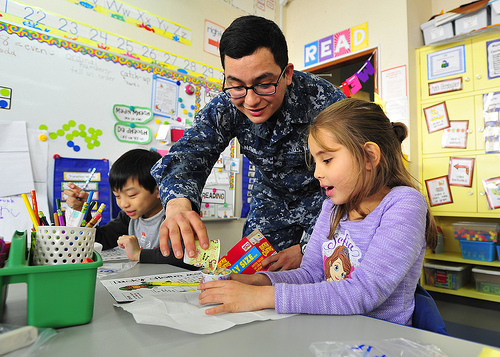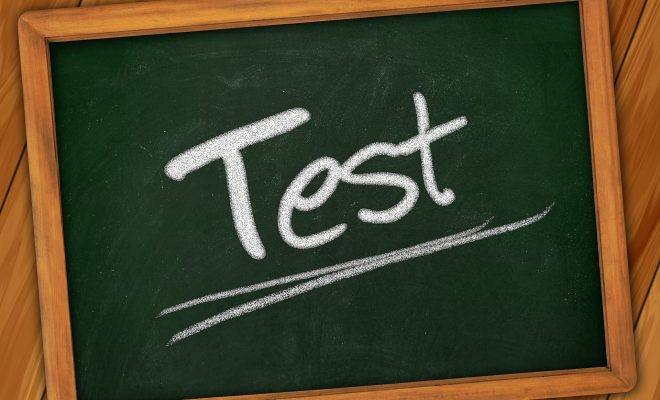Pass or Fail: Obstacles in Multi-age Classroom Development
In this multi-part series, I provide a dissection of the phenomenon of retention and social promotion. Also, I describe the many different methods that would improve student instruction in classrooms and eliminate the need for retention and social promotion if combined effectively.
While reading this series, periodically ask yourself this question: Why are educators, parents and the American public complicit in a practice that does demonstrable harm to children and the competitive future of the country?
In a lot of ways, multi-age classroom options in our schools make a lot of sense, and research backs that up. Like any part of the educational puzzle, however, there are some complications.
Having single-age and multi-age classes in a single school can result in some inequality, according to research. Better teachers, more advantaged students, and other factors that go into a better education can lead to the sense that students in multi-age classrooms are superior to those in single-age classrooms.
On the other hand, some schools tend to use multi-age classrooms as a sort of graveyard for students who are deemed to be falling too far behind. Such students are the same as those who would be impacted by retention or social promotion policies, but using multi-age classrooms for this purpose is not at all consistent with the guiding philosophy. It is hardly surprising, then, that the application of the model in this way can create low self-esteem in affected students.
Because of the above-mentioned factors, the ideal model of multi-age classrooms is not easily implemented and is not aligned with current regulations and policies. This should hardly be surprising. However, even with these various limitations, there are countless reports of the successful application of multi-age classrooms. Schools that operate multi-age classrooms effectively do so by planning ahead, taking the time to properly introduce the program to parents, and ensuring that teachers are educated and have plenty of ongoing professional development.
Although the multi-age classroom is not perfectly aligned with the current policies, many schools have implemented multi-age classrooms. They have also shown rapid progress by doing so in the correct way, ensuring that the multi-age philosophy and child-centered approach are central considerations.
Current grade-based academic standards and high-stakes testing are designed to correlate to curriculum-centered instruction, but it is hopeless to apply the same curricula or even to use the same grade-based academic standards and tests to teach or assess a diverse group of students. It is already clear that this grade-based approach and the use of high-stakes testing neglect the needs of many students, including high and low achievers. An alternative curriculum and assessment model is needed. Alternative academic standards are needed, together with a focus on multi-age classrooms. Indeed, the application of multi-age philosophies to classrooms and implementing differentiated teaching strategies allows teachers to meet the needs of all students.
According to the research, certain student demographics reap the greatest benefits from multi-age classrooms. The demographic that benefits most is one that has both disadvantaged students and high-ability students. In other words, the multi-ability element is important in the multi-age classroom, too. Of course, this creates a further problem. There are specific challenges to establishing and managing multi-age programs in high-poverty schools. It is difficult to organize classes to include a sufficiently diverse group of students in terms of ability. Careful planning can lead to success, however.
In particular, a clear benefit of multi-age classrooms is that struggling students can benefit from the resultant learning environment; an environment that is typically caring and supportive of diverse learning. High-ability students also benefit, however, because of the resultant variety and because opportunities are not limited to students who struggle academically. While the various programs for high achievers exist in a variety of forms – and some of the examples mentioned in the research include after-school activities, summer camps, and honor classes – being involved in a diverse population of various ages is also important. Multi-age classrooms require the considered development of differentiated curricula and instructions. They require the development of a curriculum that is specifically designed to meet the needs of all students.
Precisely because of the relatively minimal current research on the outcomes and benefits of education, it is crucial that multi-age classrooms maintain consistency in its objectives and focus on the guiding philosophy of student-centered and project-based learning. Setting aside the mixed research from the mid-1990s, the importance of this is apparent, especially because of the wide range of ways in which multi-age education has been implemented historically.
It has been difficult for researchers to generalize about the academic impact of multi-age education because of the diversity of implementation strategies, and because of the natural shift away from what should be the basic focus and philosophy of the system. When implemented with an awareness of the best practices for management of multi-age classrooms, positive outcomes emerge and students have the opportunity to do well.
Outlining recommendations and requirements for multi-age classrooms, however, it is important to note as well that positive outcomes are not guaranteed. Certainly they are not guaranteed in the absence of appropriate administrative and instructional support, which must be implemented alongside a considered multi-age curriculum and classroom model.
High-quality research must to be done to assess not only the effects of multi-age education in a modern context, essentially updating the research that has already been done, but also to validate, through research and randomized control trial and quasi-experimentation, exactly what are the optimal procedures and policies for multi-age education. Research is needed, in other words, to determine precisely what the best practices for multi-age education ought to be. Research is also needed to determine exactly what type of curriculum would best serve the multi-age classroom environment, and how accountability in terms of academic standards and curriculum might be defined and implemented.
Researchers will also need to look at patterns for teaching language development, reading, and mathematics in multi-age classrooms, outlining what the expectations ought to be and how they ought to be defined. Assessment of the average accelerated gains of students in these areas within the multi-age classroom will also be a requirement. Armed with this information, though, multi-age classrooms have the potential to change outcomes for students in K-12 classrooms for the better.






